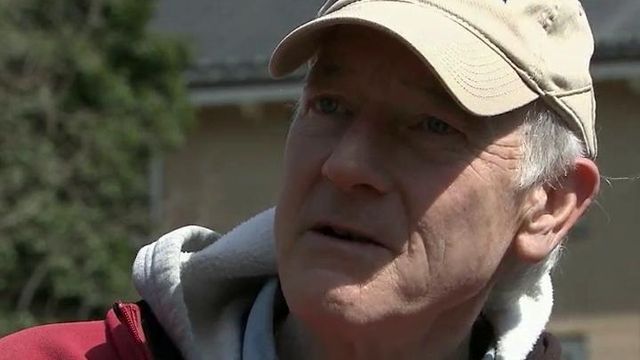Planning expert: Raleigh not suited for light rail
An urban transportation expert on Friday advised Triangle officials to rethink the push to create a regional transit system, saying it wouldn't work in Raleigh.
Posted — UpdatedTriangle Transit wants to combine 14 miles of light rail, 17 miles of commuter rail and a beefed-up bus service to handle Wake County's growing traffic congestion.
"The commuter rail plan and the light rail plan just don't make sense to me," said John Pucher, a professor in the Bloustein School of Planning and Public Policy at Rutgers University in New Jersey. He is a visiting professor this semester at the University of North Carolina-Chapel Hill in the Department of City and Regional Planning.
Pucher has more than 40 years of experience in transportation planning. He supports alternative modes of transportation, but he said planners often underestimate cost and overestimate ridership projections.
"It's just so difficult in this very decentralized, very sprawled metropolitan area," he said.
David King, general manger of Triangle Transit, said that the region is expected to grow by 1.5 million people over the next 20 years.
"Where are they going to go?" King asked. "The road system can't support it."
He said rail stations could help manage that growth, concentrating "as much as one-third" of the new residents near transit hubs.
Pucher said King and other local transit advocates are "assuming a lot."
"I'm not convinced," he said.
Light rail and commuter rail are more justified in Orange and Durham counties, where there are more walkers and bicyclists, he said. Other factors that support more transit there are a favorable route between the cities and tight parking around the University of North Carolina at Chapel Hill, Duke University and North Carolina Central University campuses, he said.
Durham and Orange counties plan to start collecting a half-cent sales tax for transit projects next month. Voters in Durham County approved the tax in November 2011, and Orange County voters approved theirs last fall.
Wake County commissioners have balked at putting a transit tax on the ballot, saying the area has other, more pressing issues. Advocates are frustrated, saying all they want is for a chance to vote on it.
"The county commissioners of Wake County, in a way, have done the right thing," Pucher said. "I don't think you can expect the voters to understand all the details and analysis."
A better option for Wake County would be a "bus rapid transit system," he said. The system essentially allows buses to use high-occupancy vehicle lanes on area highways, which he said is more efficient, flexible and cost-effective than rail systems.
• Credits
Copyright 2024 by Capitol Broadcasting Company. All rights reserved. This material may not be published, broadcast, rewritten or redistributed.




